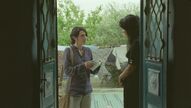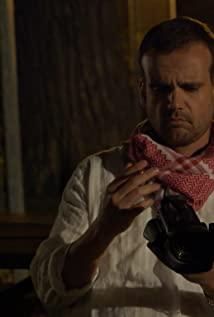In the pursuit of Lebanon, the film adopts a two-line narrative, switching back and forth between the perspectives of mother and daughter. Through the memories of others, the brothers and sisters gradually understand the turbulent life of their mother in the early years, assassinating Christian warlords, sitting in prison and being tortured. The humiliation was raped, they thought that the older brother was the product of the prison, but the harsh truth hammered their hearts - they were the products of the humiliation incident, which reached the first climax of the film, the indifference between the brother and sister and the mother The reason for the relationship was revealed, and the younger brother Simon gradually began to learn to face reality. He left his sister and embarked on the road to find his brother. Through an old warlord chief in the South, he learns a more difficult truth. His brother is the villain who later turned into a prison "executioner" and raped his mother, that is, his father. Simon can hardly bear it alone. This fact, muttering to himself "How can 1 plus 1 equal 1", the contradiction between the characters in the film reaches its climax.
The whole episode started because of the mother, and hatred continued to breed in the entanglement of beliefs, customs, and human nature, and the mother finally found out that the one who raped her was the son she was thinking of. So she left this thug child two suicide notes, one as a victim in prison and one as a mother, the former narrates hatred, and the latter resolves hatred through maternal love. The life process of the three children is also a cycle of good and evil, love and hate. The two brothers and sisters were born out of their mother's disgust. They obtained the truth and accepted it by following the mother's life process, and love was reborn at this time; The elder brother was born in love, but under the influence of warlords blossomed into evil, and the last two letters left by the mother are unreserved statements of his Oedipal behavior, although the film does not explain its follow-up, But through the foreshadowing of the previous warlord chief saying that he has always wanted to find his mother, he will surely bear heavy shackles.
The structure of the film is well-designed. The cold eyes of the older brother at the beginning of the film echo the head and tail of the mother’s tombstone (symbolizing the return to peace) in the last scene. The yellowish color of the Lebanese land adds to the film a sense of desolation and shrinking. When the war spread, no one could Stay safe from socially-wide conflicts. Hatred cannot be consumed by time, it can only be resolved by love.
View more about Incendies reviews










